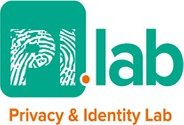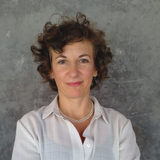If you want to join the session, mail info@pilab.nl and indicate:
- which roundtable you would like to attend
- whether you want to contribute something to start the discussion
.
This event will be held online, with hybrid possibilities explored closer to the date.
This webpage is an elaboration about this event.
10th February 2022 14:00 – 16:40 - A collective exploration, and re-imagination of pandemic policy and social life in The Netherlands and beyond.
Overall theme
When the Dutch government stopped joking around the novel Coronavirus mid-March 2020, it rolled out a large set of measures with serious implications for people's personal lives. Expert bodies were set-up to provide advice based on a mainly medically informed notion of ‘public health.’ By the time other experts were invited to the table, many groups were criticizing the government’s response. What’s ‘vulnerable’? Who’s a ‘household’? Where is ‘safe’? Whose ‘normal’ are we aiming for? Similar questions were raised in other countries.
Some critiques provoked early public policy reactions. In a dutchploitation headline that reminds one of Holland’s past liberal image, those without a ‘household’ partner were advised to “find a sex buddy for lockdown.” But people seek buddies for many other reasons, and other capabilities were under pressure: to be educated, to work, to provide social care and to and seek the same.
We will explore forms of ‘being together’ that have been challenged, modified, or encouraged in Covid-times across various domains of life, and we ask how we might bring this experience forward as we navigate and build a new normal in this stage of pandemic life. We created an agenda to address these in a line-up of three thematic roundtables, to be held in parallel sessions. Participants of each session are encouraged to engage with each other’s expertise, and to explore examples and alternatives together. In a final plenary discussion, the three groups will present the highlights of their discussion, and how these inform the general theme. In addition, we ask participants to raise points about the setting, to inform future hybrid events. We will source and distribute notes with participants afterwards, as a document to the exercise.
Roundtable I. Spaces: ‘Household’, ‘Home’, and ‘Office’
In policy and its rhetoric, citizens in many European countries are addressed in ‘household’ units, where ‘household’ generally assumes a nuclear family. This ignores other socio-economic bonds that people form, disrupting their abilities to care for one another. Socio-economic disparities also become apparent. Care burdens are shouldered unequally, not all jobs can be done remotely, and not all homes or households are fit and equipped to accommodate remote work and schooling. Some homes are downright unhealthy: damp, and badly ventilated, affecting people’s functioning in them.
What other ‘unit descriptions’ could recognize the diversity amongst us and serve different purposes, better? Can we reclaim space for inclusivity and for alternative living arrangements? Is there room for experimentation towards co-working and co-living?
Roundtable 2. Bodies: The ‘safe’ and the ‘vulnerable’, the sick, and the differently-abled
Some framings of ‘safe’ and ‘vulnerable’ have had the effect of excluding people from places and relations that afford to keep them safe. For example, as ‘vulnerables,’ diverse groups of high-risk people were made subject to policy measures designed to shield them from virus exposure. But social isolation measures were also detrimental to their (mental) health. Another effect of lockdown measures exists in the rise of in-house aggression against especially women and children. Access to help was blocked, and institutionalized monitoring programmes have been disrupted.
At the same time, digital alternatives opened up participation for those who have long been excluded. Disability artist Amy Rosa writes in April 2020, “I've had more of a social life and have seen more live comedy and art in the past month than I have had in 6 years. It’s lovely, wholesome and beautiful. It also makes me shake with sadness and anger and invisibility. We’ve always been here, us sick folk, us older folk, us disabled folk, and there has been nothing like this. Even when we ask for it. Please don't let these lines of access dissipate when life goes back to your version of normal.” Similar voices are heard in academia, for instance about retaining remote access to conferences.
What kind of affordances do the frames of ‘safety’, ‘vulnerability’, ‘health’ and ‘sickness’ provide? How might we rethink ‘inclusivity’ and solidarity in the aftermath of the pandemic?
Roundtable 3. Cultures: the ‘non-essential’ nature of art and performance
While museums, theatres, concert halls, and cinemas were forced to shut down, plenty turned to streaming platforms and online performances in their spare time. Netflix alone recorded 16 million new sign-ups in the first 3 months of 2020. Museum exhibits went online and the Rijksmuseum even made it onto the Guardian’s list of top 10 virtual art museums worldwide. Online museums included programmes for children, providing learning activities from science to design to history for home-bound youngsters. What impact does the frame ‘non-essential’ have on art and performance cultures? The non-essential spaces of art and culture seem to in fact be crucial after all -- not only for our entertainment, but also for reflections and shared experiences on the pandemic -- see for instance Museum van de Geest’s exhibition “Over het hoofd gezien”. The influence of the pandemic can also be observed in production design--theatres have adapted to online streaming using digital platforms such as Zoom and OHYAY, or adopted the 1,5-metre rule as part of the aesthetic to provide Covid-safe viewing experiences. At the same time, many artists have had to find other means to make a living, and smaller venues have had to close for good. Now, as spaces reopen, who will be on stage? Who would be able to join as audience members?
What might the repercussions of the pandemic be in the field of artistic and cultural production? After a long period of closure, can the arts stage a comeback and what would it take to convince those in power of the necessity of the arts in difficult times?
Biographies
Aviva de Groot came to the Tilburg Institute for Law, Technology, and Society with backgrounds in filmmaking, legal aid and Information Law. Her phd research focuses on justification of social-epistemic authority of (and by) decision makers. The thesis explores what ‘meaningful information positions’ are for those engaged in explanation practices. It uses the momentum of AI-informed explanation challenges to improve such practices more broadly.
Dr. Evelyn Wan is Assistant Professor in Media, Arts, and Society at the Department of Media and Culture Studies at Utrecht University. Her research is focused on algorithmic governance, the temporalities and politics of digital culture, as well as bots and robots in the cultural imagination. She teaches media and performance theory, philosophy of science, and research methodologies in arts and theatre.


